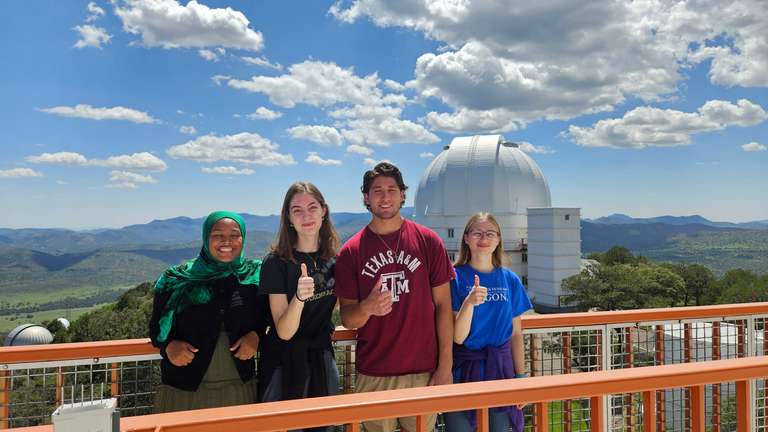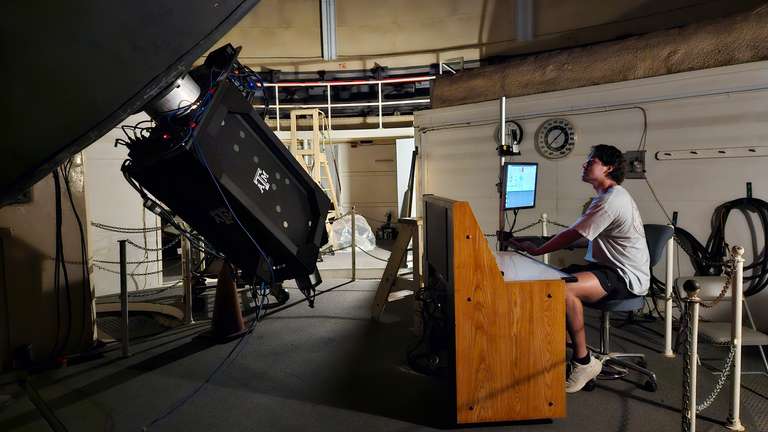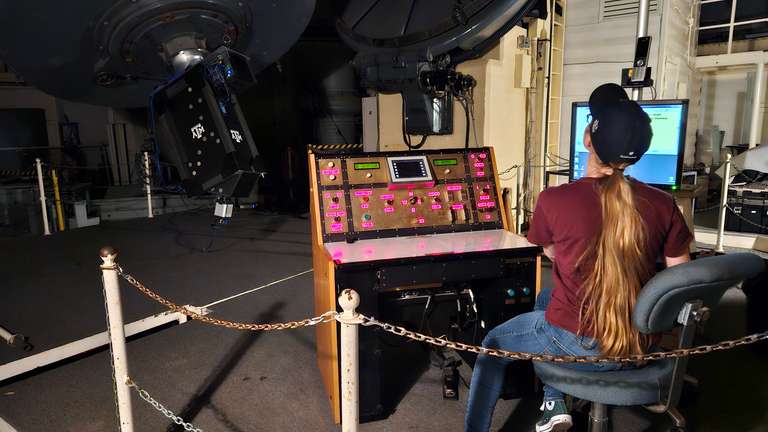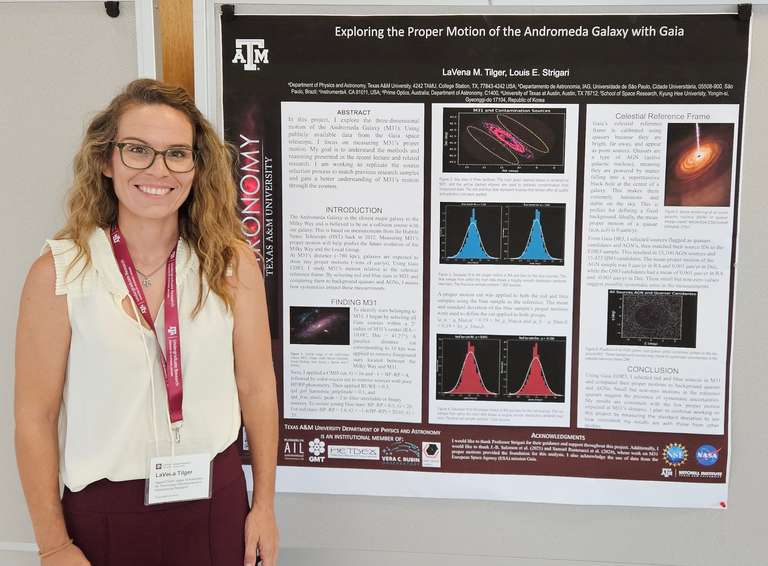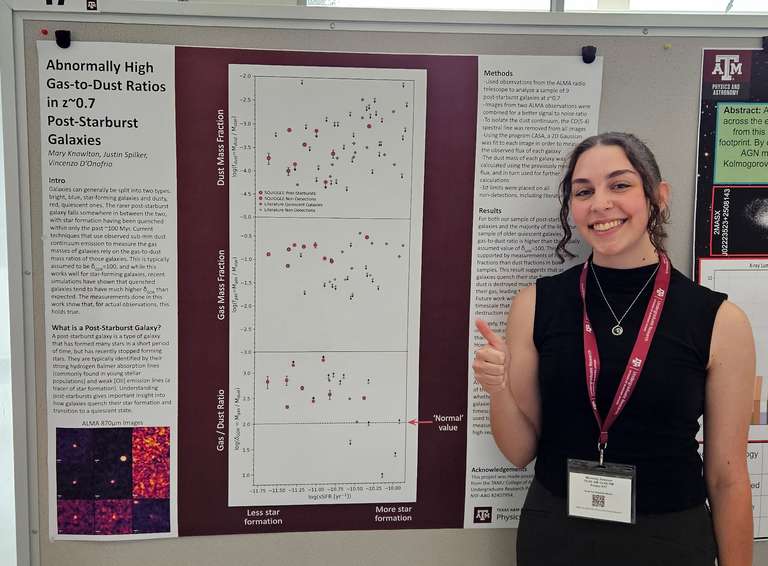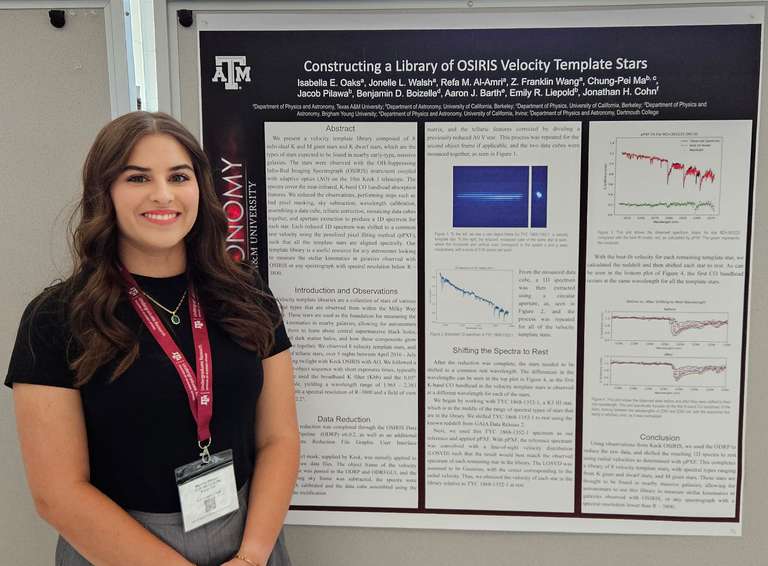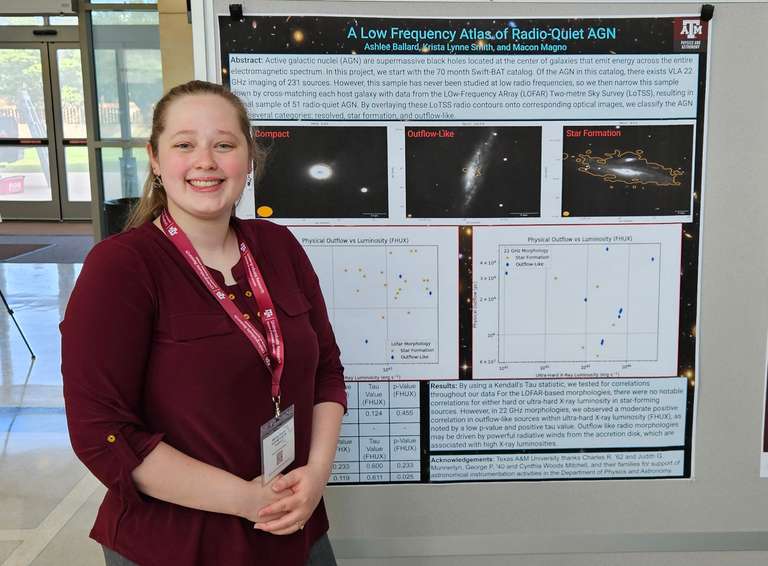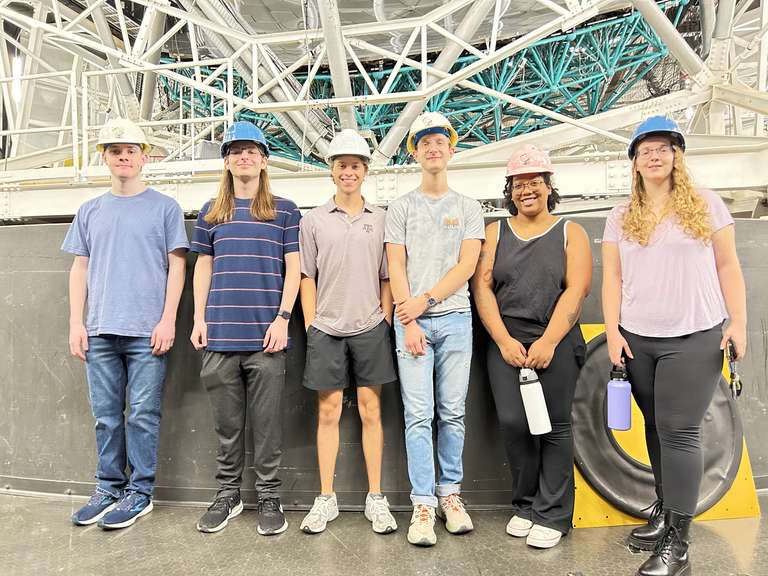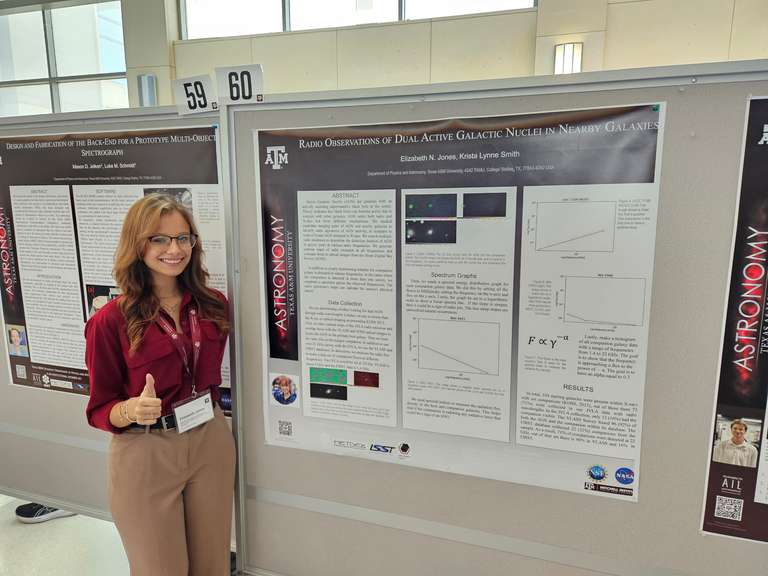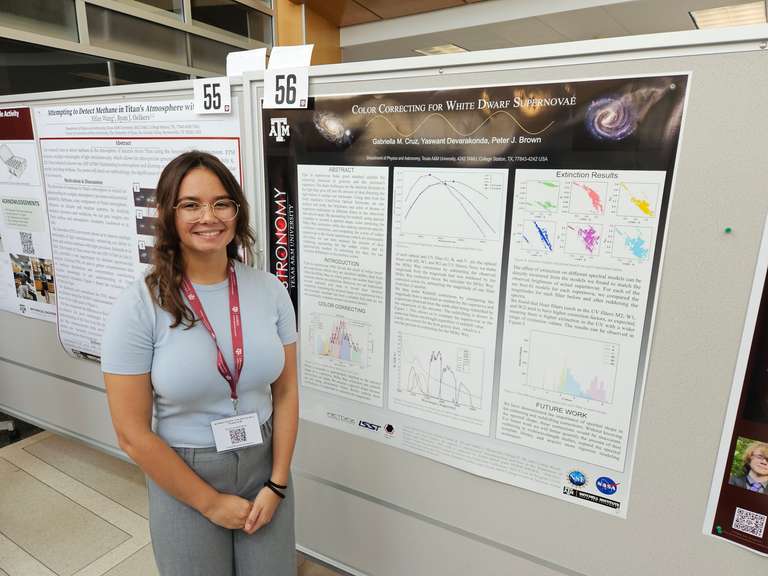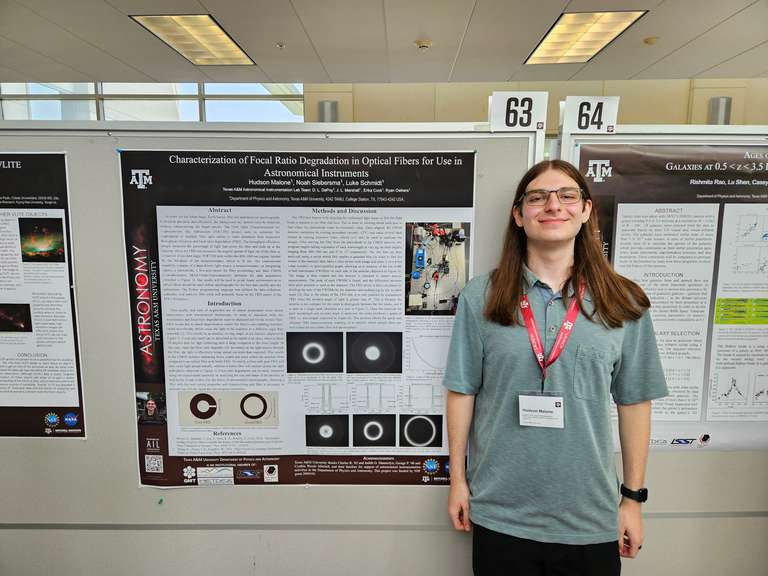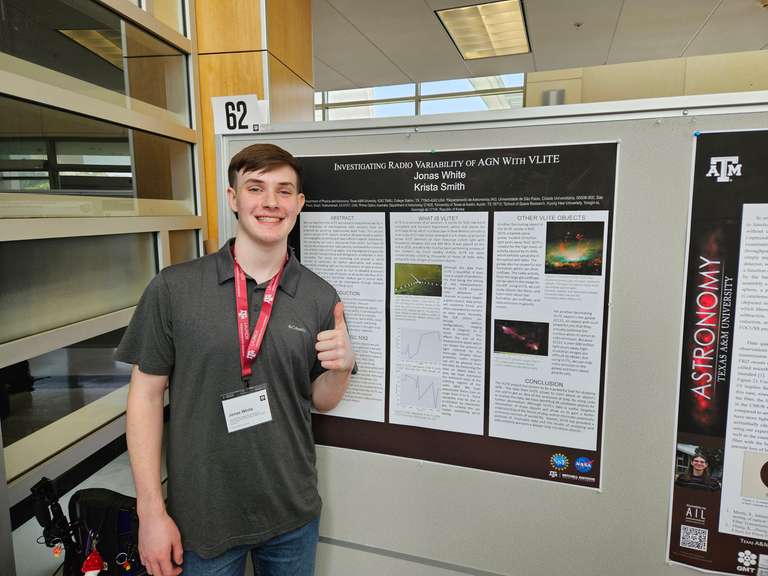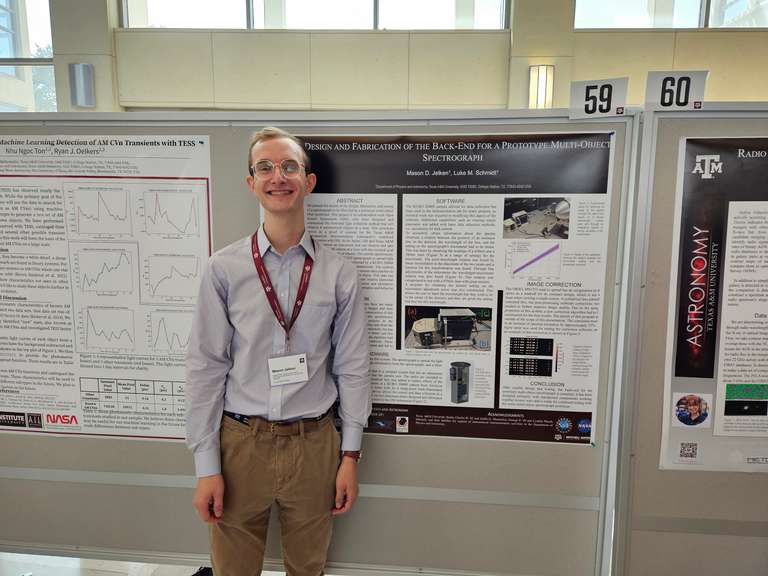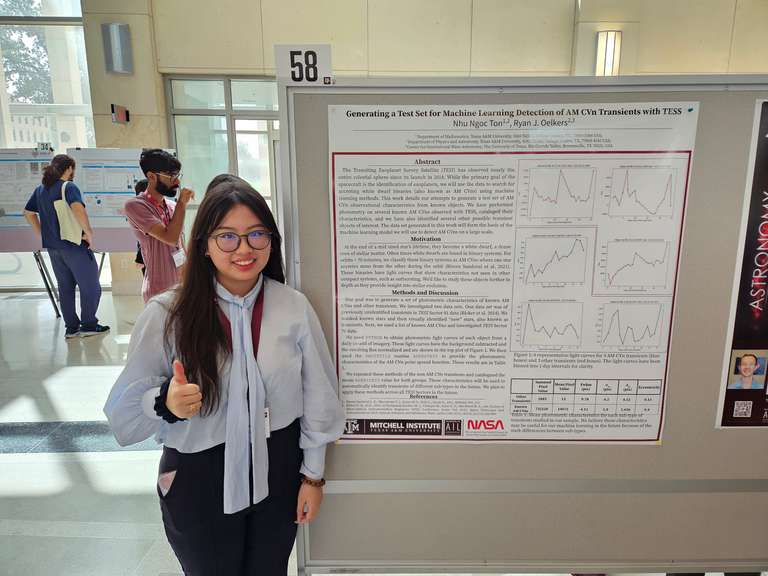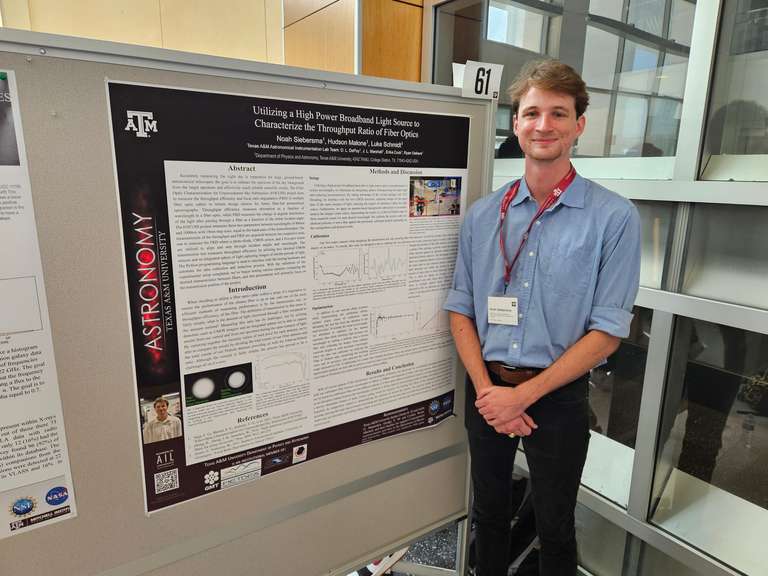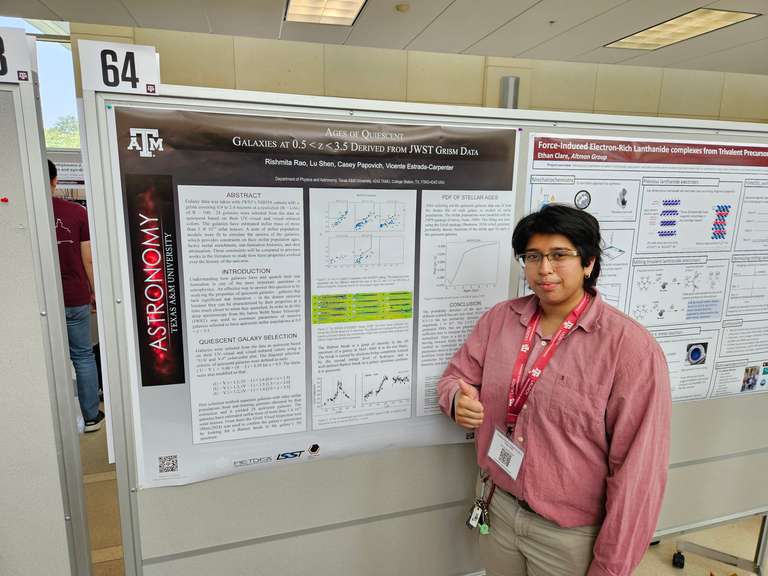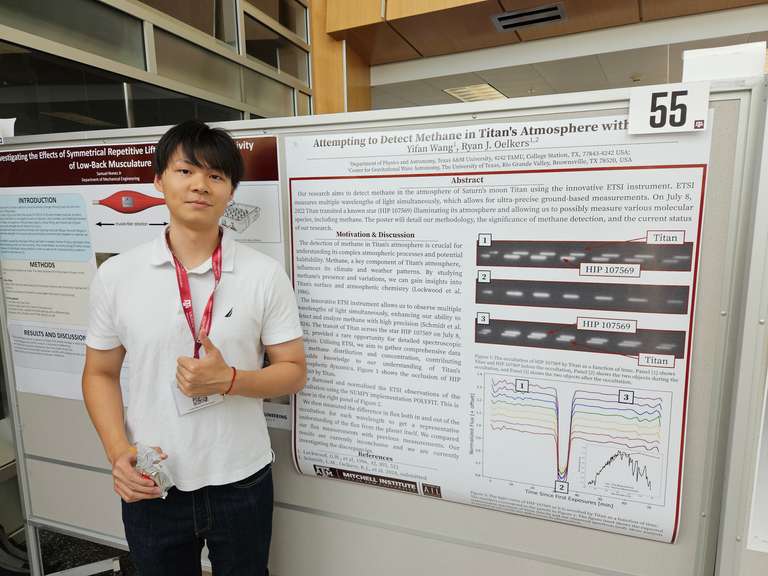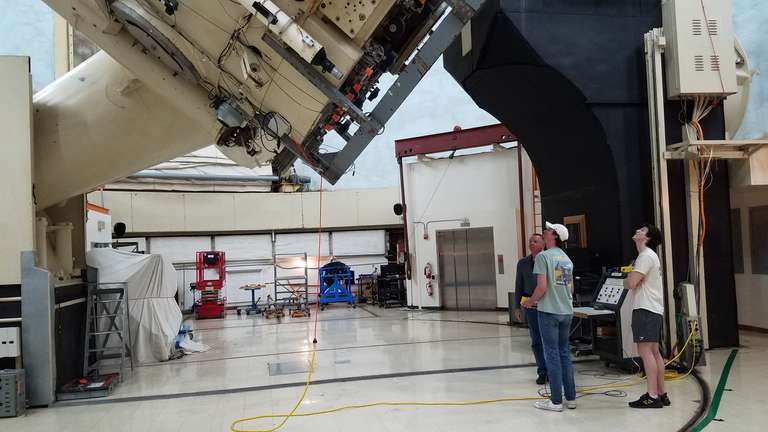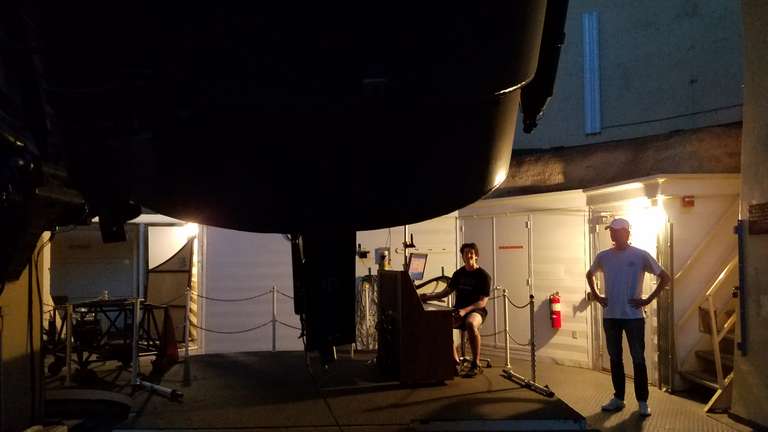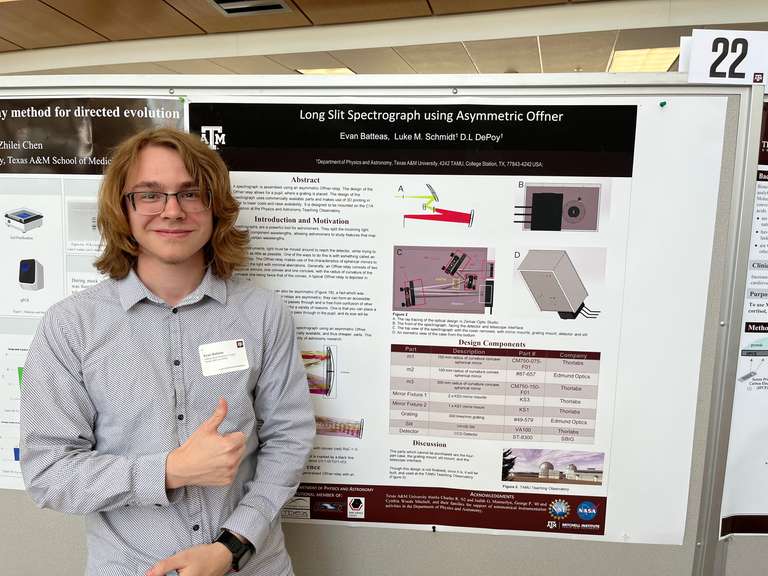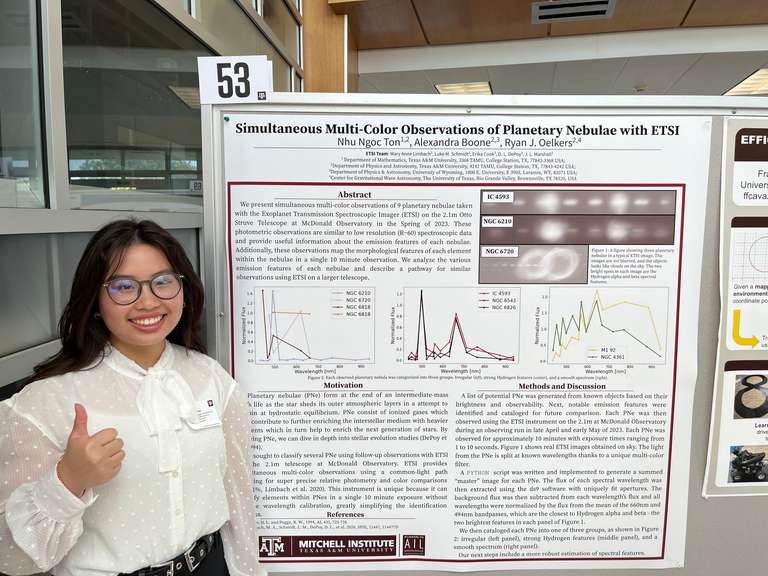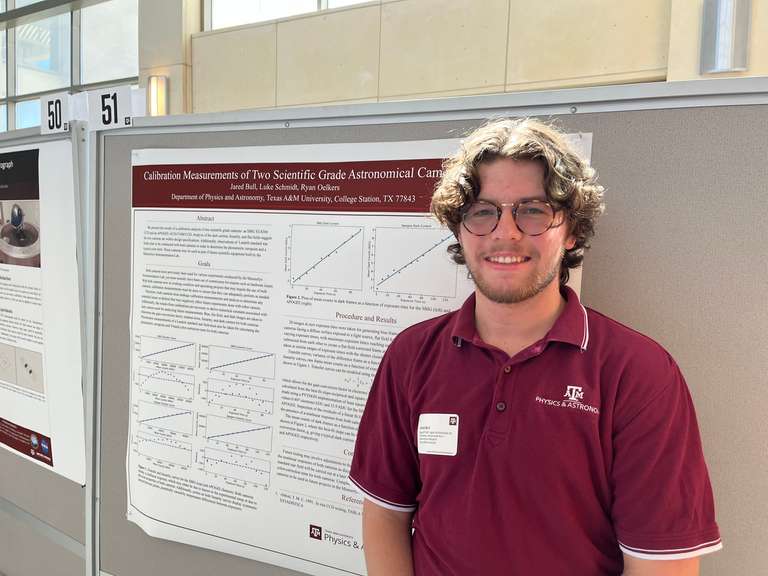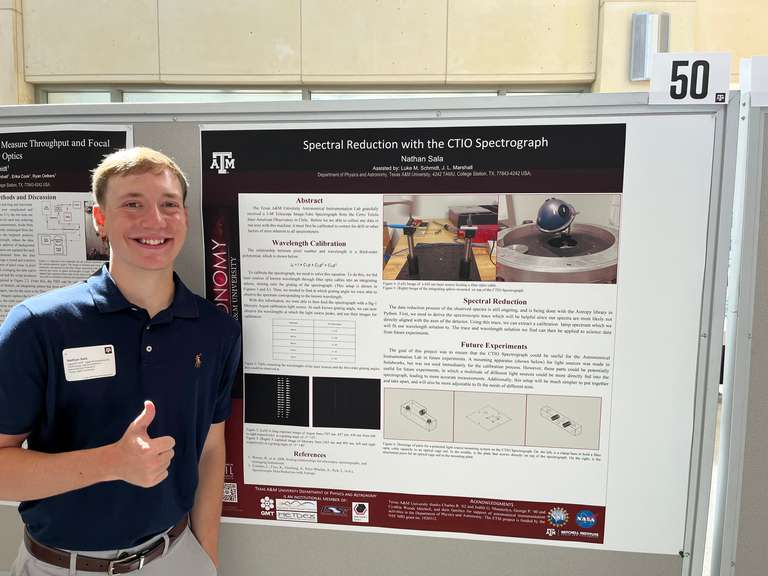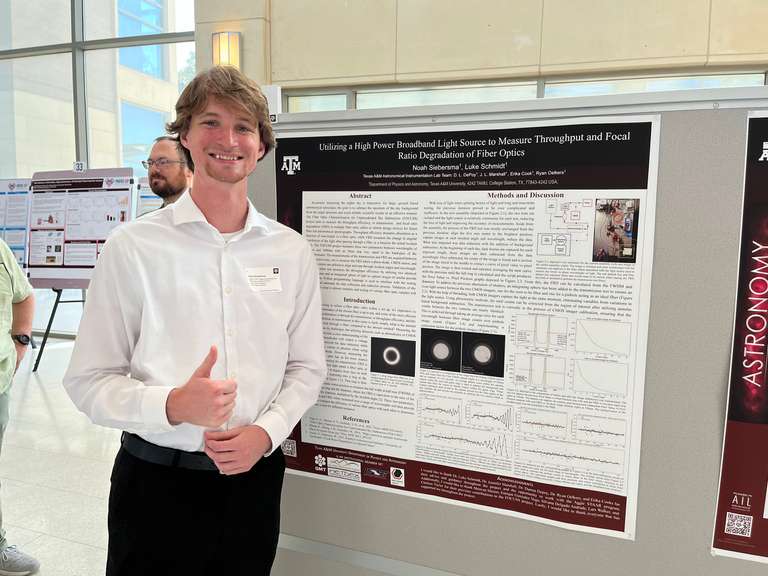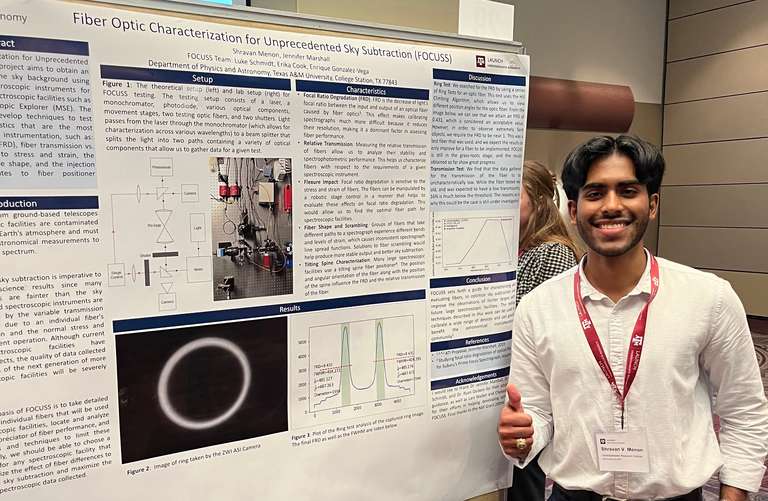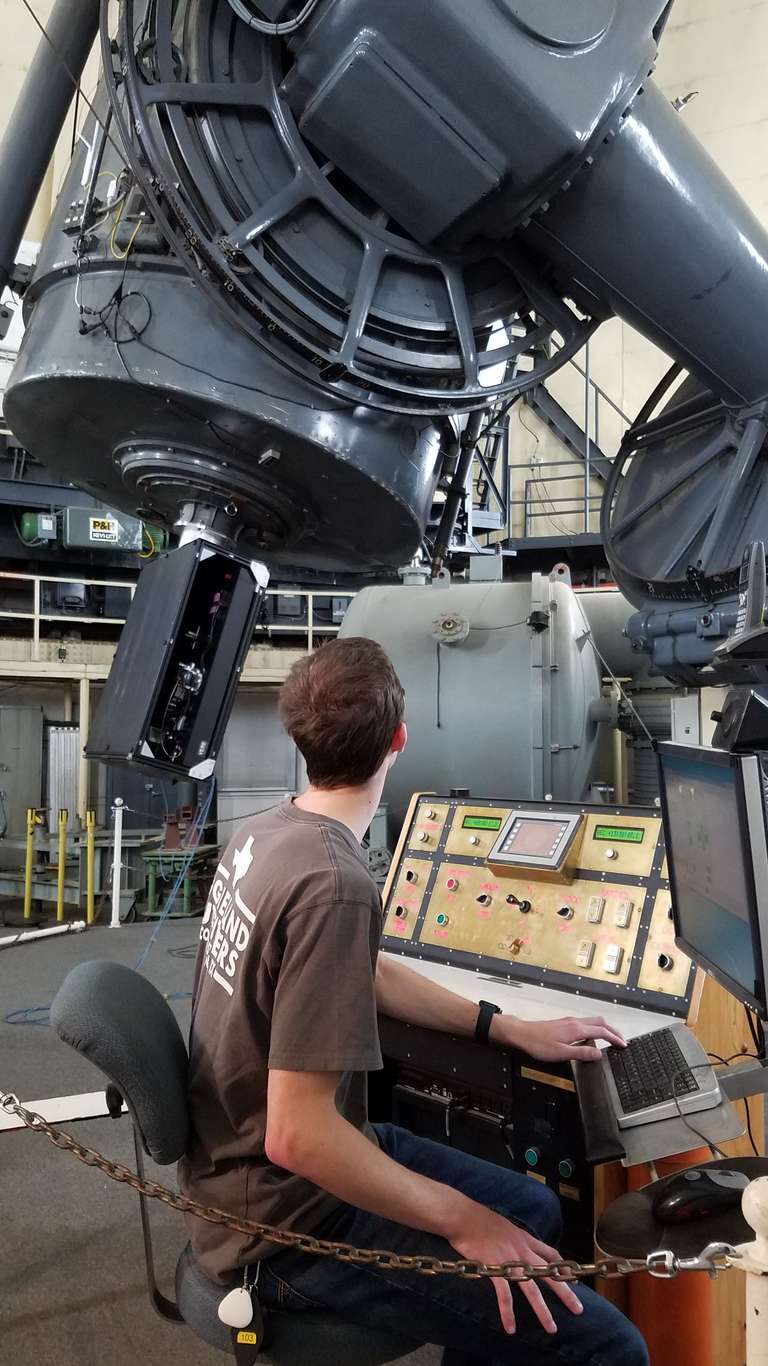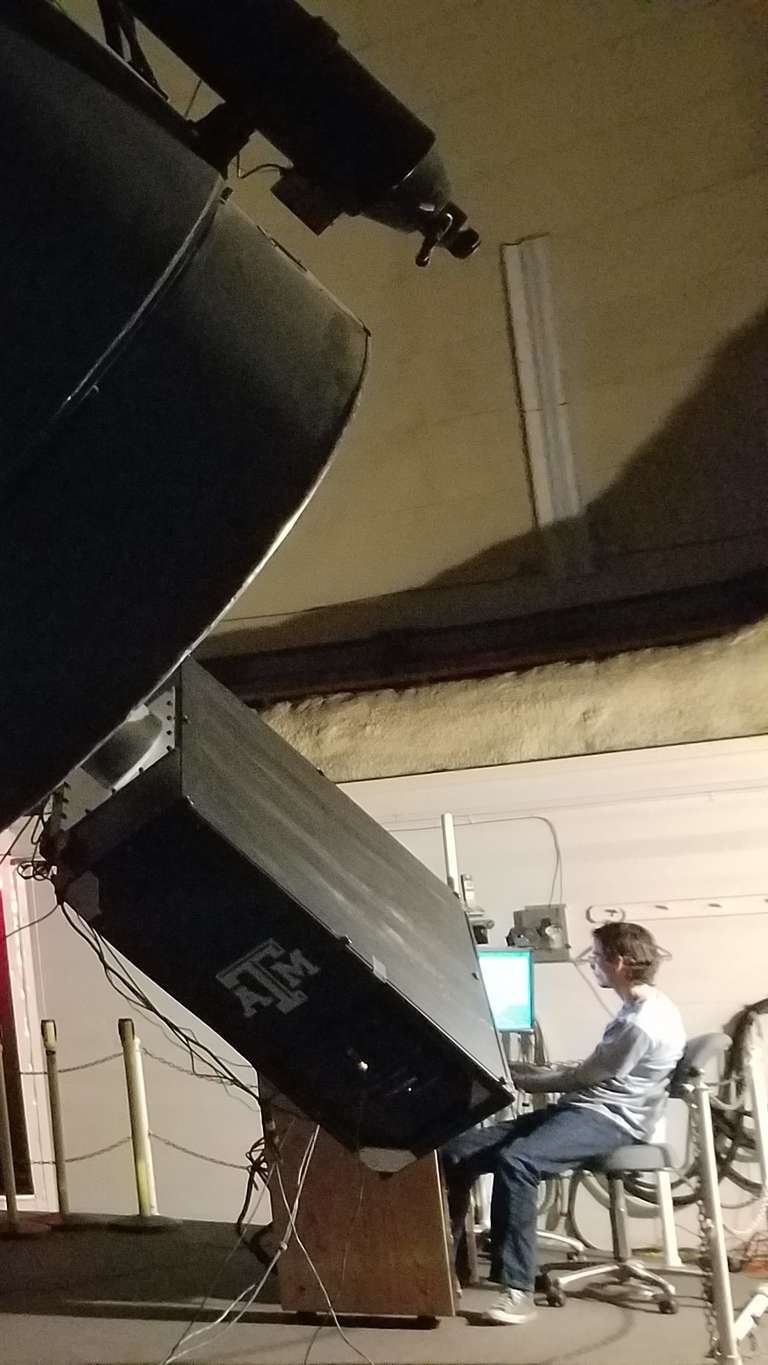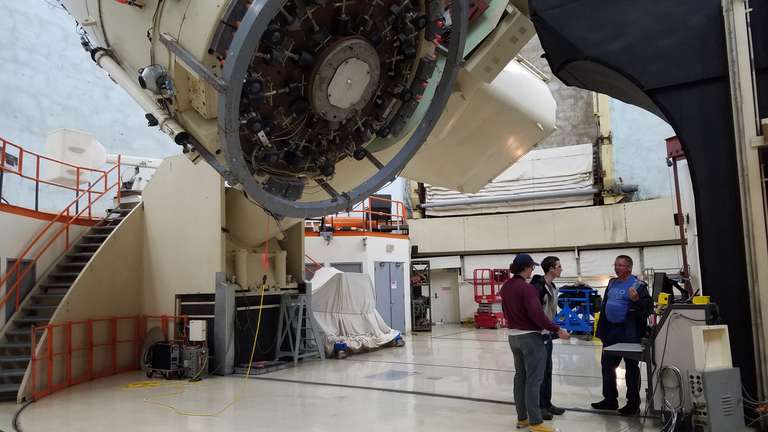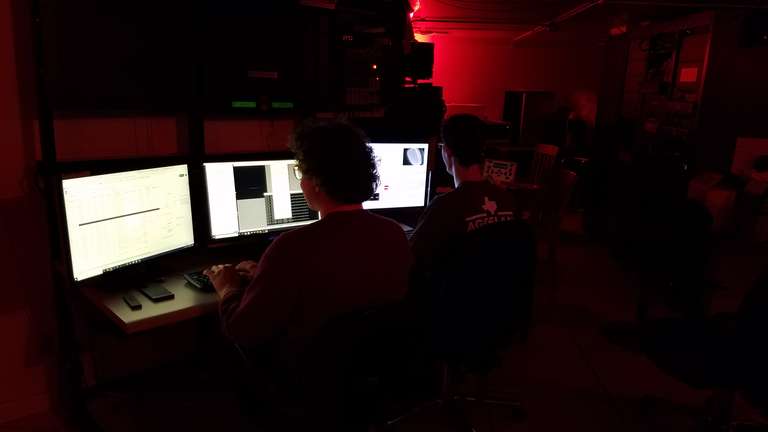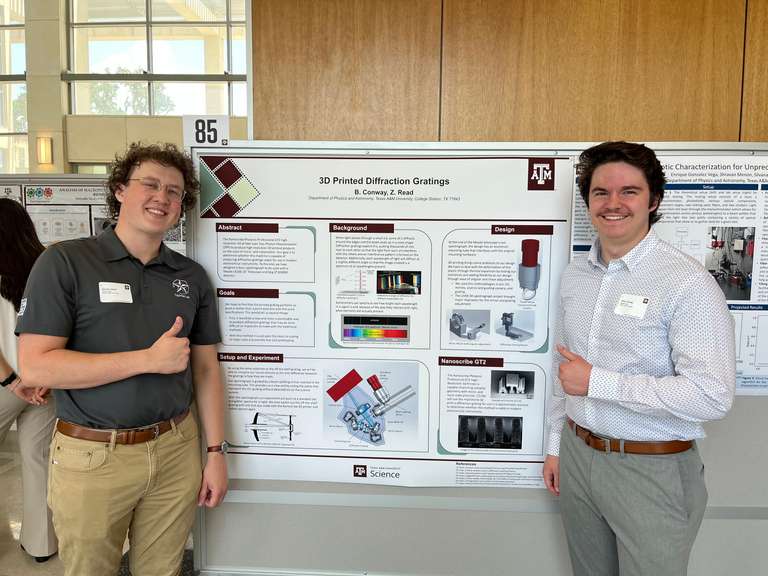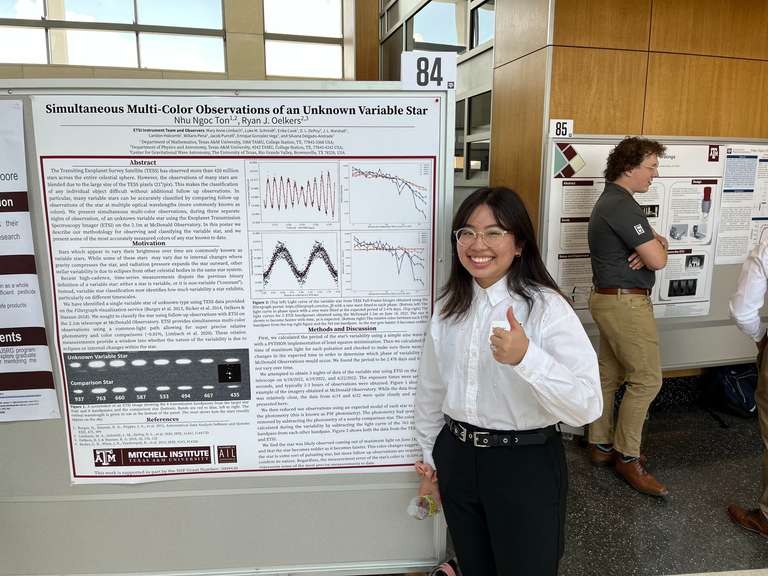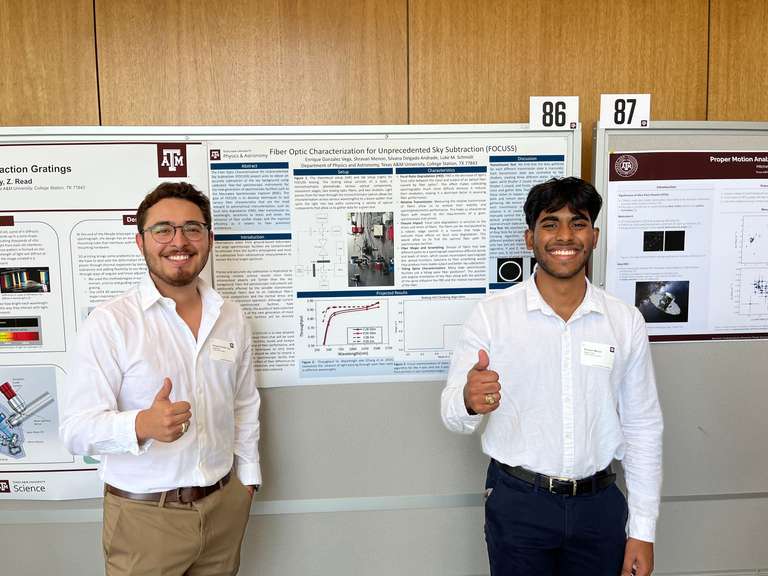AggieSTAAR
The Department of Physics and Astronomy and the Mitchell Institute for Fundamental Physics and Astronomy at Texas A&M University is pleased to host the Aggie Scholarships for Technology Advancements in Astronomical Research (AggieSTAAR) program. During the 10-week summer period, students conduct astronomical research or complete an instrumentation project with Texas A&M faculty and research staff, participate in weekly seminars and group discussions, and attend an observing trip to McDonald Observatory. Questions about the program may be addressed to the AggieSTAAR program director Dr. Jennifer Marshall at marshall@tamu.edu.
AggieSTAAR 2025
Skipper CCD Spectrograph, Dalys Guajardo
Exploring the Proper Motion of the Andromeda Galaxy with Gaia, LaVena Tilger
Python and GPIO Integration for Button Control Restoration on the Otto Struve 82" Telescope Control System, Simone Sheridan
Abnormally High Gas-to-Dust Ratios in z~0.7 Post-Starburst Galaxies, Mary Knowlton
Peculiar Ages of a Peculiar Galaxy, Liv Moody
3-D Power Spectrum Computation of Optically Confirmed Sunyaev-Zel'dovich Galaxy Clusters, Catherine Chaison
Low-Frequency Atlas of Swift-BAT X-ray Selected AGN, Nicholas Garcia
Constructing a Library of OSIRIS Velocity Template Stars, Isabella Oaks
A Low Frequency Atlas of Radio-Quiet AGN, Ashlee Ballard
AggieSTAAR 2024
Radio Observations of Dual Active Galactic Nuclei in Nearby Galaxies, Elizabeth N. Jones
Long Slit Spectrograph using an Asymmetric Offner Relay, Evan J. Batteas
Color Correcting for White Dwarf Supernovae, Gabriella M. Cruz
Characterization of Focal Ration Degradation in Optical Fibers for Use in Astronomical Instruments, Hudson Malone, Noah Siebersma
Investigating Radio Variability of AGN with VLITE, Jonas White
Design and Fabrication of the Back-End for a Prototype Multi-Object Spectrograph, Mason D. Jelken
Utilizing a High Power Broadband Light Source to Characterize the Throughput Ratio of Fiber Optics, Noah Siebersma, Hudson Malone
Generating a Test Set for Machine Learning Detection of AM CVn Transients with TESS, Nhu Ngoc Ton
Ages of Quiescent Galaxies at 0.5 < z < 3.5 Derived from JWST Grism Data, Rishmita Rao
Attempting to Detect Methane in Titan's Atmosphere with ETSI, Yifan Wang
AggieSTAAR 2023
Long Slit Spectrograph using Asymmetric Offner, Evan Batteas
Simultaneous Multi-color Observations of Planetary Nebulae with ETSI, Nhu Ngoc Ton, Alexandra Boone
Calibration Measurements of Two Scientific Grade Astronomical Cameras, Jared Bull
Spectral Reduction with the CTIO Spectrograph, Nathan Sala
Utilizing a High Power Broadband Light Source to Measure Throughout and Focal Ration Degradation of Fiber Optics, Noah Siebersma
Exploring Stellar Kinematics Near NGC 772's Central Massive Black Hole, Christian Lambert
AggieSTAAR 2022
3D Printed Diffraction Gratings, Brant Conway, Zachary Read
Simultaneous Multi-Color Observations of an Unknown Variable Star, Nhu Ngoc Ton
Fiber Optic Characterization for Unprecedented Sky Subtraction (FOCUSS), Enrique Gonzalez Vega, Shravan Menon, Silvana Delgado Andrade

